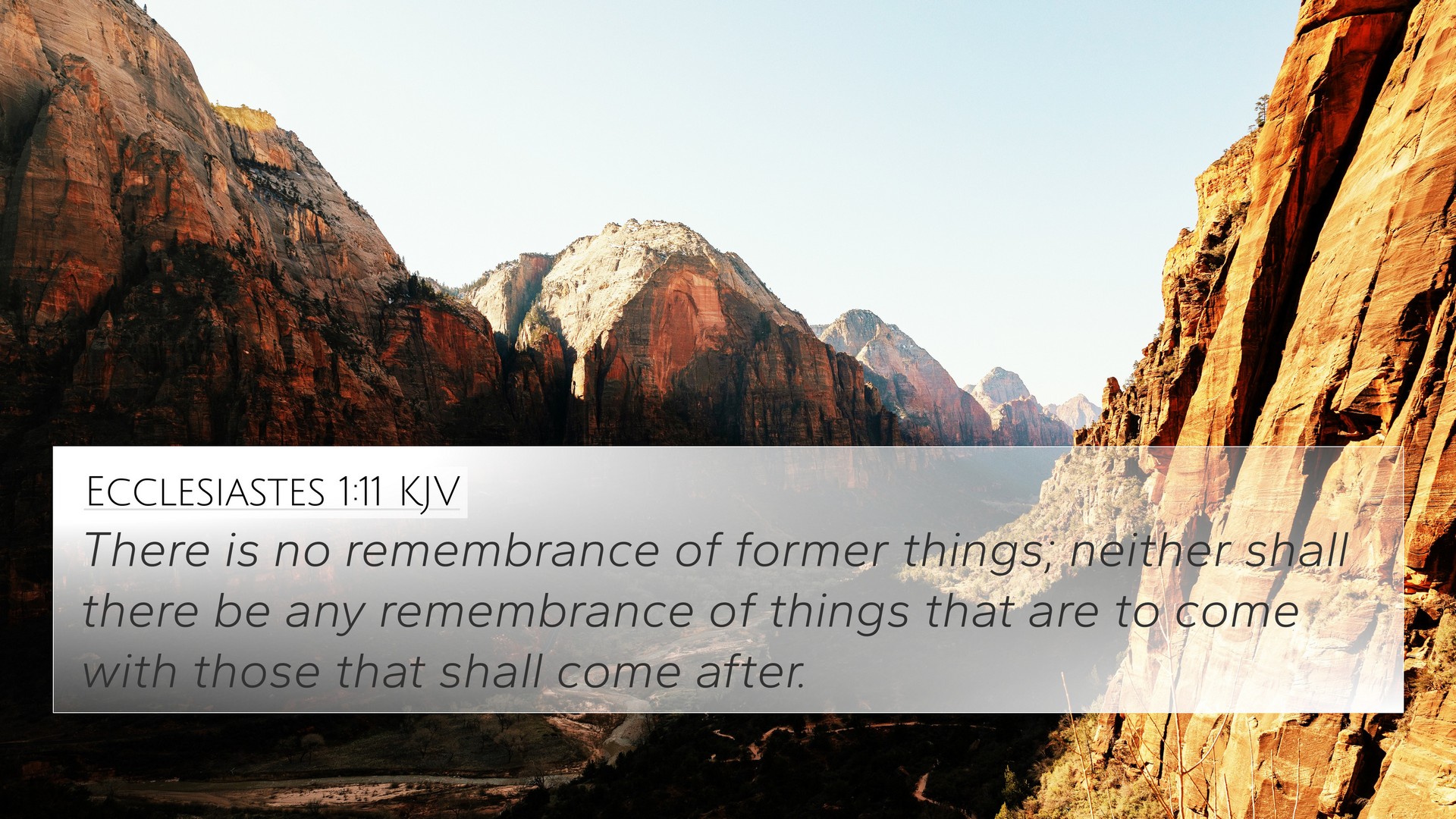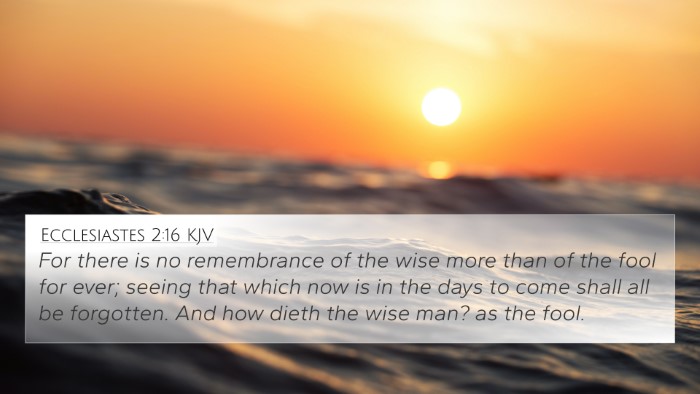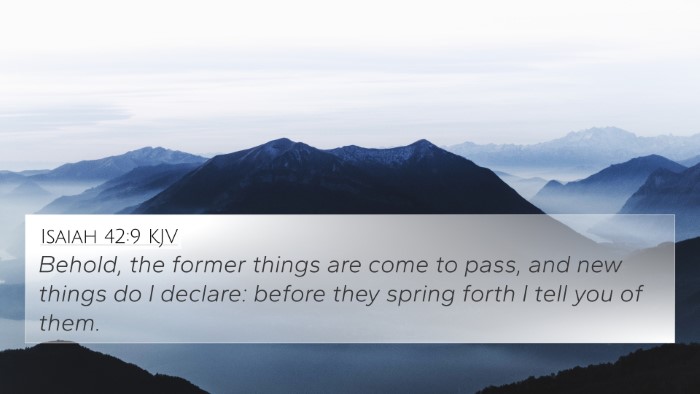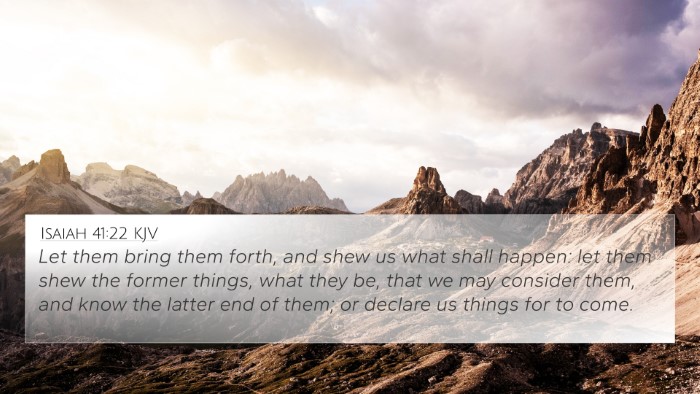Understanding Ecclesiastes 1:11
Ecclesiastes 1:11 states, "There is no remembrance of former things; neither shall there be any remembrance of things that are to come with those that shall come after." This verse encapsulates a profound statement about the nature of human experience and the fleeting aspects of life. The insights from various public domain commentaries such as Matthew Henry, Albert Barnes, and Adam Clarke provide a deeper understanding of its meaning.
Summary of Insights
The verse speaks to the cyclical nature of history and human experience, suggesting that much of what happens in life is ultimately forgotten. Here are the key points derived from noted commentaries:
- Matthew Henry: He emphasizes the idea that the world is indifferent to the passage of time. Events of the past have little bearing on the present, and despite human achievements, memories fade.
- Albert Barnes: Barnes points out that humanity’s pursuits are often ephemeral and that what we consider significant may ultimately hold little weight in the broader perspective of time and eternity.
- Adam Clarke: Clarke delves into the philosophical implications, noting how human endeavors lack permanence. He draws attention to the transient nature of human accomplishments and the inevitable forgetting that follows generations.
Thematic Connections and Cross-References
The themes of Ecclesiastes 1:11 resonate throughout the Bible, showcasing the interconnectedness of scripture. Below are cross-references that support and relate to this verse:
- Psalms 103:16: "For the wind passes over it, and it is gone, and its place remembers it no more." This verse reinforces the concept of human fragility and fleeting existence.
- Isaiah 40:6-8: "All flesh is grass, and all the goodliness thereof is as the flower of the field." Highlights the temporality of life and human efforts.
- James 4:14: "For what is your life? It is even a vapor that appears for a little time and then vanishes away." This emphasizes the transient nature of life.
- 1 Peter 1:24: "For all flesh is as grass, and all the glory of man as the flower of grass." Similar in its portrayal of life’s brevity.
- Hebrews 9:27: "And as it is appointed unto men once to die, but after this the judgment." Implies the necessity of remembrance in the context of legacy and judgment.
- Ecclesiastes 7:1: "A good name is better than precious ointment; and the day of death than the day of one's birth." Captures the contrasting values of life experiences.
- Revelation 20:12: "And I saw the dead, small and great, stand before God; and the books were opened." This suggests that nothing is ultimately forgotten in the records of time, connecting the transient with divine remembrance.
Practical Applications of Cross-Referencing
Utilizing these connections, one can deepen their understanding of Biblical themes and the philosophical questions raised by the book of Ecclesiastes. Here are ways to leverage these insights:
- Bible Study Guides: Incorporate these verses into a cross-reference Bible study guide to explore themes of memory, time, and human existence.
- Comparative Bible Verse Analysis: Analyze the similarities between Ecclesiastes and other wisdom literature in the Bible, emphasizing how various authors reflect on memory and legacy.
- Thematic Studies: Investigate the implications of remembering through scriptural cross-referencing, showing how different texts interact with one another to portray a comprehensive understanding of God's plan.
- Sermon Preparation: Utilize the shared themes and cross-references to support sermon topics focusing on the nature of our lives in contrast to eternal significance.
Conclusion
Ecclesiastes 1:11 serves as a poignant reminder of the fleeting nature of our experiences and achievements. The reflections from various commentaries shed light on the philosophical implications of forgetfulness and permanence. By studying the connections between this verse and others in the Bible, one can gain a richer understanding of the complex tapestry of human life and divine purpose.
Further Resources for Cross-Referencing
For those looking to delve deeper into the connections between Bible verses, consider using:
- Bible Concordance: A tool for identifying related verses quickly.
- Bible Cross-Reference Guides: These help to visually lay out scripture connections.
- Comprehensive Bible Cross-Reference Materials: Utilize resources that offer an extensive look at thematic references throughout the scripture.







